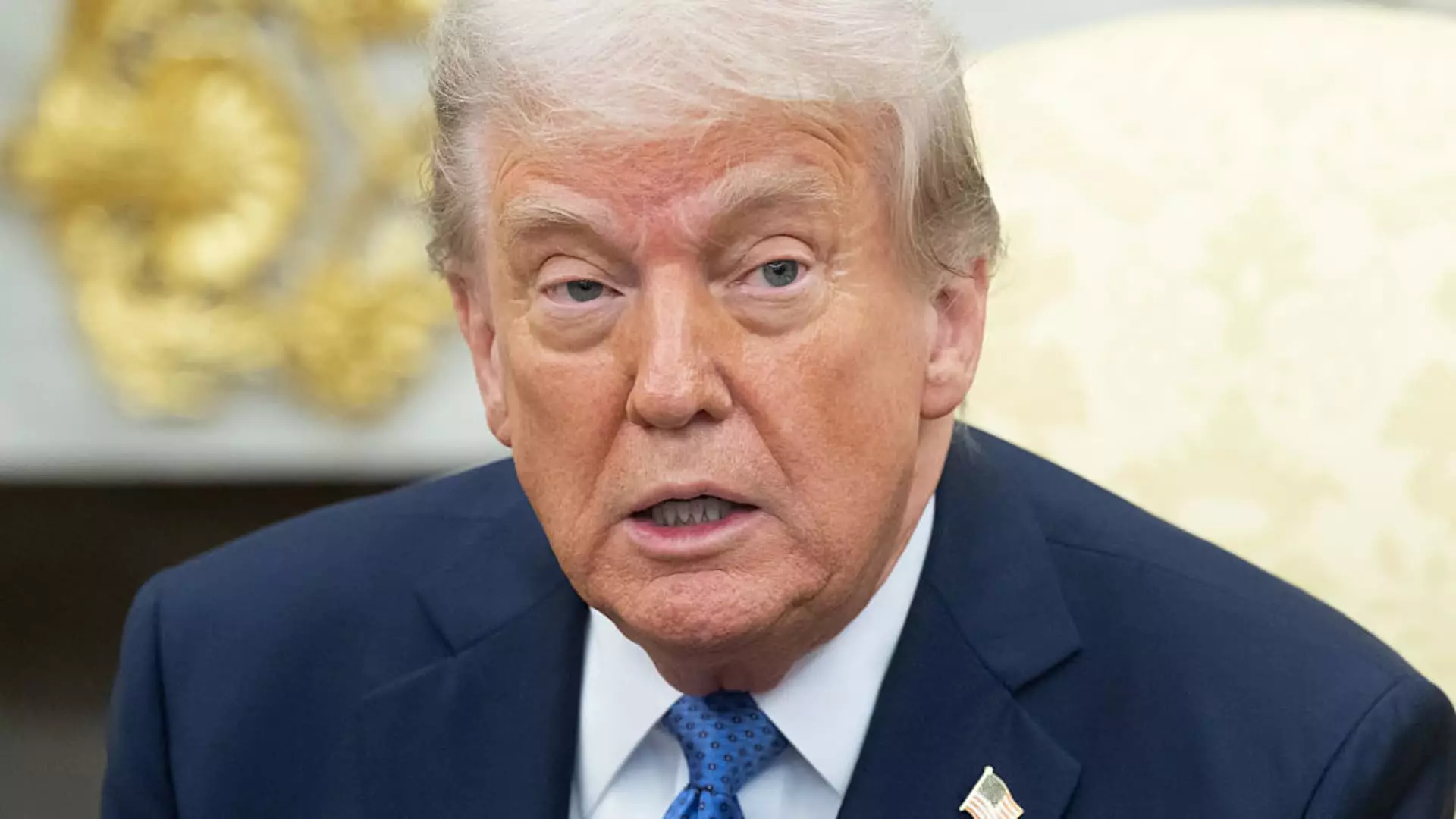In an unexpected twist of events, the legal status of many international students in the United States has been restored by the Trump administration, albeit temporarily, as revealed in a recent legal hearing. The renewed status is akin to a flickering light in a darkened room, offering a momentary reprieve, but the underlying turmoil and uncertainty loom large. The Justice Department, represented by attorney Elizabeth D. Kurlan, announced the activation of the records that had been abruptly terminated, igniting hope among students who had faced alarming visa revocations. However, this gesture may serve more as a band-aid on a gaping wound than a sustainable solution.
Political Revenge at Play
The abrupt policy shifts come amidst tense political environments and suggest a punitive approach towards international students seen as dissenters or potential threats. Many students found themselves ensnared in a web of bureaucratic instability, where mere political activism or past mistakes, like driving under the influence, became grounds for visa revocation. Kurlan’s comments indicated that while there might be a temporary restoration, the galley of ICE still holds immense power to terminate status based on a myriad of factors, keeping students under constant scrutiny. For many, this feels less like a procedural correction and more like a vendetta against those who dare to oppose the prevailing political narrative.
The Mixed Blessing of Reinstatement
News of reinstatement trickled in with a disconcerting lack of clarity, sparking widespread confusion among students and legal representatives. Like a dimly lit hallway, the path forward remains uncertain. Some students, scholars at prestigious institutions like UC Berkeley and RIT, received unexpected lifelines, yet countless others remain in the dark, their futures hanging in the balance. Many immigration attorneys, such as Jath Shao, expressed cautious optimism, acknowledging that while this could be viewed as progress, it fails to address the insecurity that grips these individuals, leaving them vulnerable to the whims of an unpredictable immigration system.
The Shadow of Stigma
Adding to the dilemma, the status termination will still reflect in students’ records, potentially casting long shadows over future immigration opportunities. Elora Mukherjee, a prominent figure in the Immigrants’ Rights Clinic, articulated a compelling point: simply restoring records is insufficient. If the U.S. government wishes to genuinely rectify the situation, it would require a more holistic approach—one that acknowledges past injustices and works to heal the lingering wounds. Nonetheless, it seems that the administration is more inclined towards a surface-level fix rather than comprehensive reform, perpetuating a cycle of insecurity.
In Search of Real Solutions
While the temporary restoration may bring relief, it hardly signals the end of challenges faced by international students. Many still grapple with the ramifications of the policy changes, desperately seeking stability in a system fraught with uncertainty. The statement from Wilson, an attorney representing numerous students, encapsulates this anxiety perfectly—students are, in effect, trapped within a landscape that feels increasingly hostile. A significant number still hold revoked visas, leaving them on the brink of crisis, feeling as if they’ve been abandoned in a bureaucratic limbo.
The Path Toward Safety and Security
Advocates like Shao emphasize the necessity for more robust safeguards that ensure international students no longer live under the threat of sudden visa revocation. It’s not merely an issue of status restoration; it’s about restoring dignity and confidence within a society that should celebrate diversity rather than criminalize it. Many immigrants and their advocates are clamoring for a more humane immigration policy, one that recognizes the contributions of international students rather than viewing them through a lens of suspicion and punitive measures.
In light of these recent developments, it’s pivotal to remember that the challenges faced by international students reflect broader questions about the values and principles that lie at the heart of American society. Rather than exemplifying resilience, the current political climate creates an atmosphere of fear and instability. As efforts to navigate this increasingly tangled web of immigration laws continue, it becomes imperative for all stakeholders involved—students, institutions, and governments alike—to re-evaluate their roles in fostering an inclusive and fair environment for those who come to contribute to the American dream.


Leave a Reply